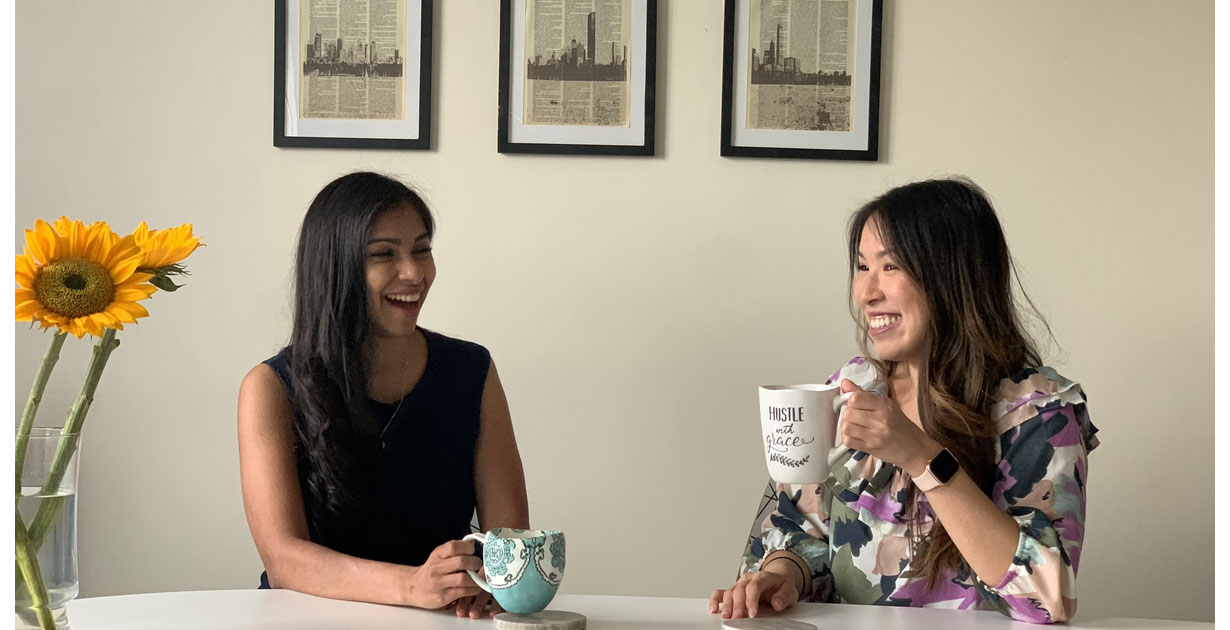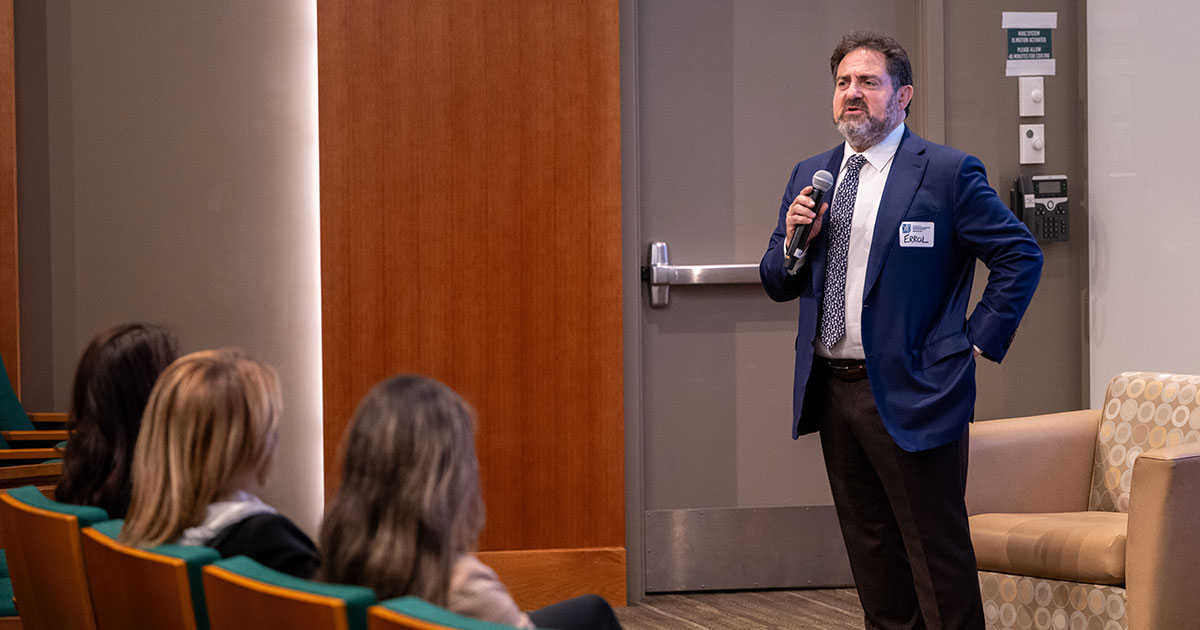Seizing the Moment to Help People Wade Through the Mental Health System

If you’ve ever tried to find a therapist, you know it can be tough to navigate referrals, insurance, and stigma. Asini Wijewardane MBA’19 and and Colleen Leung MBA’18 want to solve this problem.
Wijewardane and Leung have experienced the challenges firsthand.
“I grew up in a Chinese American family, so we didn’t speak much about mental health, and when someone close to me became depressed, I had no idea how to help her with her depression, find a therapist, or help her even find support at all,” said Leung.
She started asking friends about their experiences. And, through Babson’s extensive network of 43,000 alumni, Leung linked up with Wijewardane. The two are recent graduates of the One-Year MBA Program and quickly bonded over life hacks around mental wellness and the challenge of finding a therapist for themselves and loved ones.
“It was the same story over and over again. It’s so difficult to find a therapist, which makes it so easy to quit.”
Colleen Leung MBA’18, Co-founder Unmute
For Wijewardane, her experience started in London 10 years ago when she worked for an NGO that connected cancer patients from ethnic minority backgrounds with emotional support and mental health services and therapies.
“I grew up in South Asia for half my life. People don’t really know how to access help because it’s something that people do associate with a stigma and they don’t talk about it,” said Wijewardane.
Leung and Wijewardane began to do market research and noticed a pattern.
“It was the same story over and over again. It’s so difficult to find a therapist, which makes it so easy to quit,” Leung said. They knew they could do better, and that’s where the idea for Unmute came about.
An Idea That Was Made for the Moment
Going from personal experience, to reaching out to friends, to market research—the pair began to crystalize their thinking.
“We had all of this information now,” Wijewardane said. “We had figured out how to find a therapist, we knew the process, we had been going over this for a month—we realized that we should just launch something.”
When COVID-19 hit, doing what Babson students do best, the two applied the Entrepreneurial Thought & Action® (ET&A)™ methodology and launched Unmute—a platform that connects people to therapists.
Initially, Unmute was developed to help friends and family demystify therapy. However, they soon realized that there was broad interest beyond just their personal networks. The platform is now available to anyone in the United States, and the service is free.
Growing the Venture
Using skills they had learned at Babson, the pair knew what they needed to do. Now, they just needed the right connections and resources.
The Women Innovating Now (WIN)® Growth Lab—a Babson accelerator that provides women entrepreneurs with the community and resources to successfully scale a business—seemed like a perfect fit.
“The WIN Lab provides the structure that we need and the whole Babson network, even virtually,” Leung said. “It’s a phenomenal program so far.”
To learn about experiential learning at Babson, check out the ongoing series about the journey of first-year students through the Foundations of Management and Entrepreneurial Leadership (FME) course.
Besides the website, Unmute has an Instagram profile and a Facebook page, and the company is consistently gaining customers as it ramps up.
“We’ve got more than 100 people over the last few months that we’ve managed to help, and we now have a team of volunteers,” Wijewardane said.
The duo recently pitched Unmute at Babson’s annual Rocket Pitch Competition and already have received a follow-up call from a company owner in the mental health services industry.
On the foundation of a solid idea, Unmute has multiple paths to growth.
“Right now, we’re trying to figure out how to make it sustainable,” Wijewardane said. “Our hypothesis is to build an end-to-end platform where we match people to therapists with an algorithm. We’ve got 100 data points, and we’re working with data scientists to build an algorithm to do the matches automatically.”
And, with all the progress they’ve made, the Babson community stands out.
“From the very beginning, we reached out to professors,” Leung said. “We first connected with Lidija Polutnik to figure out where to start market research and how test demand. We spoke with Jay Rao from an innovations perspective in terms of technology. And, then he connected us to more people. Les Charm has been incredibly helpful in terms of setting up our team and discussing ways to divide equity. Ed Marram was another professor we spoke to in terms of innovation and startups—and he connected us to entrepreneurs who might be helpful in this space.
“This wouldn’t have been possible without a Babson education.”
Posted in Community



